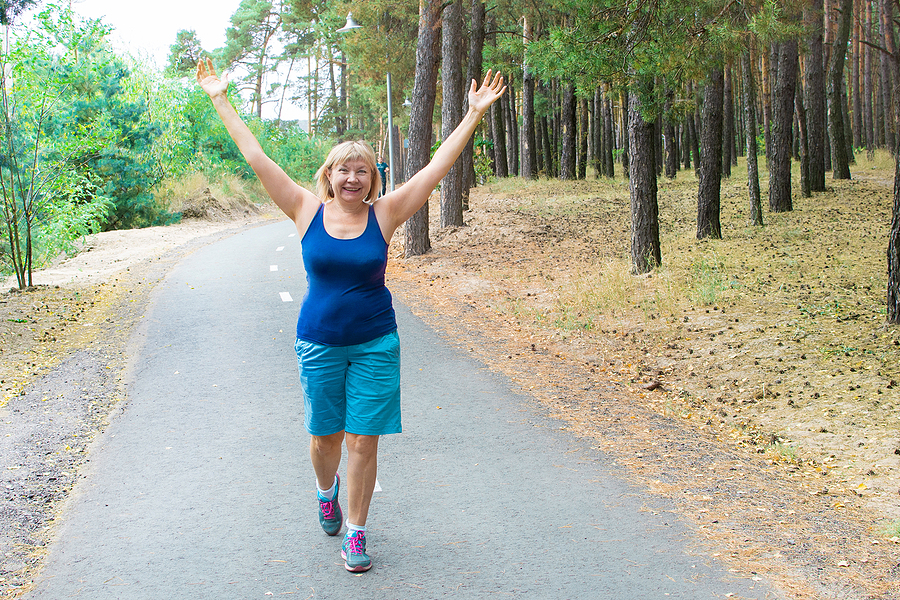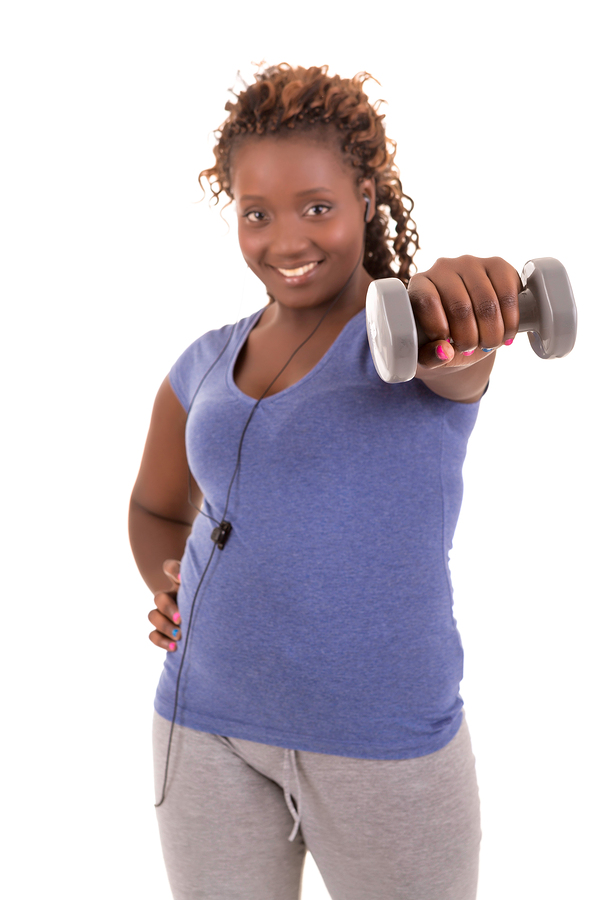Modest amounts of exercise, like daily walks, can be a powerful tool that reduces depression and anxiety, improves energy, and helps you feel happier. Exercise improves physical health and is vital for maintaining a healthy weight, for sure. Though, those who exercise regularly are generally motivated by the almost immediate rewards and the enormous sense of well-being it produces. In return for their efforts, they gain a higher level of energy, better sleep, a sharp mind, and more positive and calming feelings.

Download On Track with Barix: You’re One Step Away from Happiness!
How Does It Work?
What we know about how exercise helps improve mood and well-being:
- Exercise increases serotonin, regulating mood, sleep, and appetite.
- It reduces immune system chemicals that can make depression worse.
- Exercise increases the level of endorphins – natural mood lifters.
Return on Your Investment
We all have only a finite amount of time. When you invest a portion of your time and energy into regular exercise, you can expect to reap these rewards:
- Better concentration and clear thinking. Exercise stimulates the grown of new brain cells, prevents age-related decline, improves concentration, and sharpens mental focus.
- Feel strong and powerful. As you invest in your health and well-being, a sense of accomplishment fosters feelings of body acceptance, self-worth, and confidence.
- Sleep improvements. Even smaller amounts of exercise help establish healthy sleeping patterns, protect the brain from damage, and improve energy and focus.
- Less Stress. Exercise reduces stress on the body and helps feelings of anxiety be replaced with a sense of calm.
- Fewer Worries. Exercise provides a distraction from worries and helps break the cycle of negative thoughts that can fuel anxiety and depression.
- Better Coping. When faced with challenges, exercise can help you cope in a healthy way, instead of resorting to alcohol, junk food, or other negative behaviors that only make symptoms worse.
- More energy. If you’re new to exercise, start slowly, but be consistent. Boosting your heart rate amplifies long-lasting energy.

It’s Easier than You Think
Thirty minutes of moderate exercise five days a week will allow you to begin to reap the mental health and happiness benefits of movement.
- Break it down into two 15-minute or three 10-minute sessions if that is easier for you.
- Start slow. It works well to set a time of day and then do even a little exercise at that time to begin to establish a pattern. You can add time, intensity, and a variety of activities as you go. As a habit develops, your energy will increase, and you’ll feel like doing more.
- Pace yourself, so you are breathing a little heavier than usual but aren’t gasping for air. Your body should feel warmer but not overheated.
- Schedule exercise when your energy is highest – first thing in the morning, at lunchtime, or right after work.
- Focus on activities you enjoy. Any movement counts – walking your dog, gardening, cleaning your house, window shopping, or working on a home improvement project.
- Add music. Pairing music with movement doubles the happy vibes.
- Be comfortable. Wear comfortable shoes and clothing, and select a setting that you enjoy – a nearby park path, your neighborhood, or your living room.
- Be social. Working out with someone else can be more fun and motivating.
What’s Standing in Your Way?
Even when you know that exercise will make you feel better, it can be hard to move past the obstacles in your way and get started.
Fatigue. When your body is exhausted, depressed, or stressed, it can be hard to find the motivation to move. Knowing that regular exercise is a powerful energizer may not be enough at that moment. However, if you can push past the lethargy for just a short walk, you’ll start to build a routine that will reap results.

Time. The thought of adding another “to-do” to your day can seem overwhelming. Try to build more activity into the things you’re already doing. Park farther away, take the stairs, walk to another area of your work rather than calling, walk extra aisle while shopping, or walk in place during commercials.
Feeling overwhelmed. Start slowly, perhaps going for a short walk or turn on music and dance. Search YouTube for free exercise videos for any experience level. Keep it simple. You don’t need new clothing or a gym membership.
Lack of Confidence. Maybe you think that you’re too old, too heavy, or too out of shape. Perhaps you fear that everyone is laughing at you. If you start to look around, you’ll notice that very few people look like the images in magazines. And most people would cheer your efforts, not criticize you. Exercise at home if you want privacy, and keep in mind that accomplishing small fitness goals will boost your confidence and improve how you think about yourself.
It’s Time to Get Happy
Now you know – long hours in the gym are not required to reap the mood-boosting benefits of regular exercise. Find activities you enjoy, start small and build from there. Soon you’ll notice that you’re feeling better and getting more out of life.

